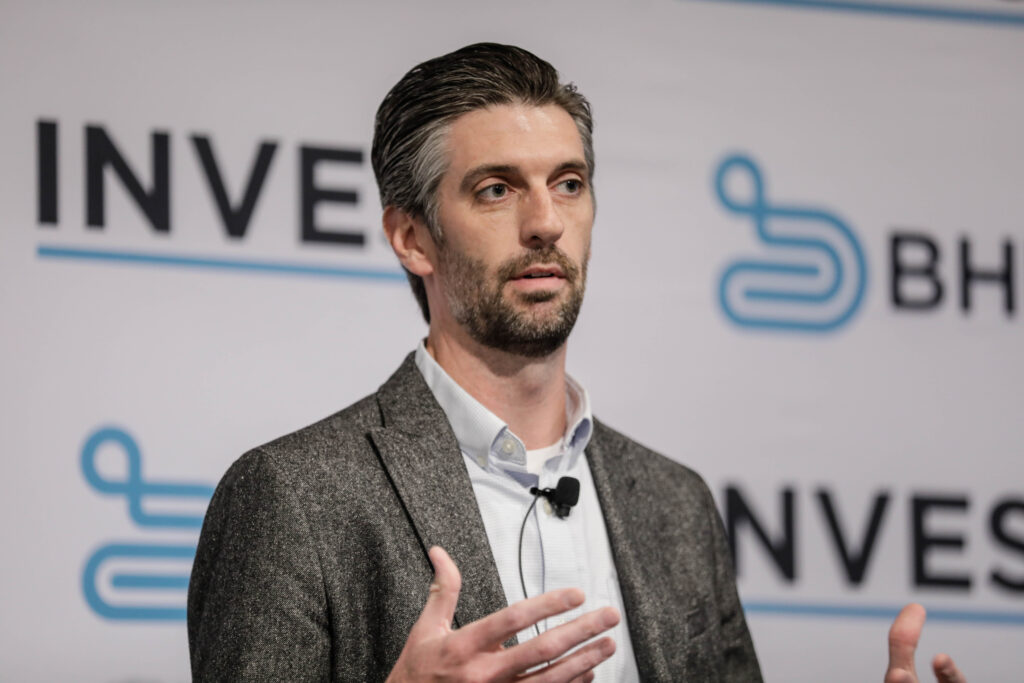As economic headwinds make smaller tuck-in mental health deals an appealing prospect in 2023, some larger providers may opt to slow their M&A strategy altogether in favor of de novos.
Tuck-in acquisitions take time, vetting and money. And in some cases, even after all that, transactions can fail to meet the buyer’s expectations and never cross the finish line.
For operators looking to lock in growth, de novos could cost less and speed up the process.
“A small deal takes as much work to get done as a big deal takes to get done,” Peter Nystrom, chief commercial officer at Nystrom & Associates, said during Behavioral Health Business’ INVEST event. “You see a lot of larger groups thinking, ‘Do I want to dwell on this acquisition, or pull back and focus on a de novo strategy?’ So acquisitions really have to make sense for our groups in order to do it.”
Founded in 1991, Nystrom & Associates is a behavioral health provider with locations in Minnesota, Iowa and Wisconsin.
Public companies in the behavioral health market have recently been weighing build-or-buy options as well. In fact, behavioral health giant LifeStance Health Group Inc. (Nasdaq: LFST) is prioritizing organic growth in 2023 and more strategic M&A, Chairman and CEO Ken Burdick said during the company’s Q3 earnings call last week.
“We are intentionally moderating M&A as we continue our shift toward organic growth,” Burdick explained.
Additionally, at the end of the day, operators opting for organic growth may end up in a pretty similar place to those that acquired another company.
But a de novo likely will cost less, Nystrom said. If that trend happens more frequently, it could drive down demand for smaller behavioral acquisitions in the future.
“I think there’s going to be less demand for a lot of these tuck-ins,” Nystrom said. “I think sellers are going to have come to a realization that there’s going to be a multiple compression in the near future if it hasn’t already happened.”
According to a recently released report from PitchBook, that compression has, indeed, begun – but not because of a shift in transaction activity. Rather, staffing challenges have tempered the behavioral health market’s overall outlook.
“In previously red-hot categories such as behavioral health, multiples may begin to cool as growth slows due to staffing limitations,” the report noted.

Managing risk
Acquisitions also come with a certain amount of risk – especially coming out of 2021’s record-breaking valuations.
“You’ve got to really make sure that [your dealmaking team has] done the diligence,” William Hartje, chief development officer at Refresh, said at INVEST. “There could be some pain, if you pay such high prices for something that maybe pans out not to be what you expected. … So I would expect that there’s going to be some misses.”
Outpatient mental health provider Refresh Health has more than 300 locations in 37 states. Its services include treatment for substance use disorder (SUD), mental health conditions, eating disorders, couples therapy, psychiatry and more. In March, it was acquired by UnitedHealth Group’s (NYSE: UNH) health services division Optum for an undisclosed sum.

Going through the M&A process is a bit like dating, Nystrom said.
It takes months to build out the relationship, go through the legal process and complete due diligence. That time doesn’t always pay off. But with that same amount of time and effort, a company could be investing in marketing and recruiting to pop up a de novo, or build out its footprint in a market it has already entered.
“We see a fair drop off from initial interaction to [the companies] that actually make it through,” Gaurav Bhattacharyya, CEO of Geode Health, said at INVEST. “Sometimes it’s because they just don’t want to do it. That’s where the value of a broker-lead process is valuable because you know that that seller is motivated to move forward.”
Founded in 2017 by global investment firm KKR, the Chicago-based Geode Health provides in-person and virtual outpatient treatment across the country.

When an acquisition makes sense
Strong M&A strategies can make sense, too, such as when operators are attempting to fast-track expansion into new markets and capitalize on the established relationships of the assets they’re buying.
“For the de novos to be successful, you do need the market reputation, you need relationships with the referral ecosystem,” Bhattacharyya said.
It could be easier and make financial sense to acquire a provider that already has these relationships, Bhattacharyya said. Since seller reputation is key, due diligence is paramount.
It’s important to start the vetting process early and spend time with a seller and their team to make sure it is a good fit.
“We always like to get out in front of the potential seller,” Nystorm said. “We’re going to get to know them right away rather than looking at a pipeline with names on a spreadsheet saying, ‘Okay, they look good on paper, but functionally, do they look good?’ Are they good in person, so you can really understand the quality, how they feel about going forward [with the process], how long the owner wants people in the business for?”
Despite the risks of M&A, there continues to be a lot of opportunity in the mental health market, and it’s unlikely to substantially slow any time soon.
“I think the nature of the market is that it’s extremely fragmented,” Bhattacharyya said. “And so I think the volume of deals, if anything, might pick up. But they’ll tend to be smaller, kind of true roll-up opportunities as opposed to large platforms necessarily.”



